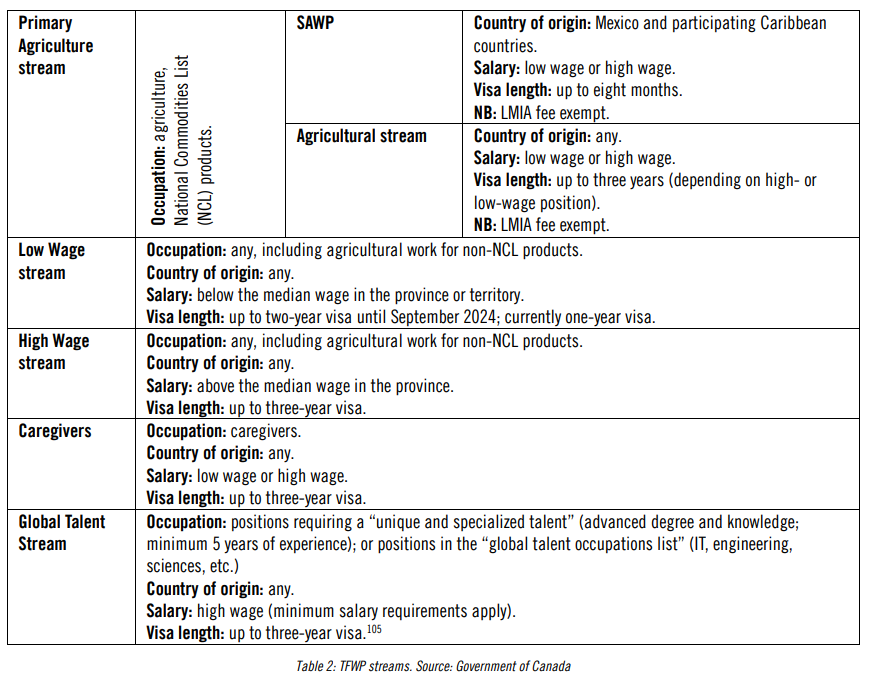'Canada's TFWP is inherently exploitative, in violation of Canada’s international obligation to respect, protect and fulfil the right to just and favourable conditions of work'

Not even one year after a United Nations expert criticized Canada’s Temporary Foreign Worker (TFW) Program, Amnesty International has released a report detailing how the country has implemented rules that lead to harsh working conditions for migrant workers.
“In its current design, Canada’s TFWP is inherently exploitative, in violation of Canada’s international obligation to respect, protect and fulfil the right to just and favourable conditions of work,” said Amnesty.
The group reported that migrant workers suffer from different forms of “labour exploitation”. These include:
- Unfair and unlawful wage deductions
- Excessive working hours
- Being asked to do extra tasks and tasks not included in their contracts
- Unsafe working conditions
- Serious injuries and failure to get medical care
- Inadequate housing
- Racist psychological and physical abuse
- Racialized gender-based violence
- Restriction of movement, surveillance and lack of privacy
- Racial discrimination in the workplace
“Many migrant workers have told us they came to Canada hoping to secure a better future, yet instead, they felt they were treated like slaves,” said Erika Guevara-Rosas, senior director for Research, Advocacy, Policy and Campaigns at Amnesty International. “These workers are vital for putting food on the country’s tables and caring for the elderly. They deserve much better.”
In an August 2024 report, Tomoya Obokata, United Nations special rapporteur on contemporary forms of slavery, noted that the TFW Program “serves as a breeding ground for contemporary forms of slavery, as it institutionalizes asymmetries of power that favour employers and prevent workers from exercising their rights”.

Source: Amnesty International
‘Canada’s responsibility for abuses under the TFW Program’
The Canadian federal government is responsible for the abuses that migrant workers go through under the TFW Program, according to Amnesty International.
“In light of the systemic nature of the abuses, it is Amnesty International’s conclusion that labour exploitation and other abuses under the TFWP are caused by Canada’s immigration policy, laws and regulations,” said the group in the report titled ‘Canada has destroyed me’: Labour exploitation of migrant workers in Canada.
“They cannot be attributed to a few unscrupulous employers, nor can be understood as isolated incidents. They fall squarely under Canada’s responsibility in as much as Canadian authorities have designed, regulated and implemented a visa system for the TFWP that intrinsically carries a higher risk of labour exploitation.”
Amid the “structural obstacles inherent to the TFW Program”, the federal government’s system of addressing workers’ concerns is ineffective, says the group.
They note that while a number of vulnerable workers have been given open work permits – as opposed to the often criticized closed work permits – “the open permit provides no remedy for past abuses, nor does it shield workers against future ones”.
“While the OWP-VW has allowed some migrant workers to escape abusive employers, the scheme has severe limitations and cannot be considered a solution to the systemic risks migrant workers with tied visas are exposed to. In fact, its sole existence further highlights the pervasiveness of abuses committed against migrant workers,” said Amnesty International.
“Also, labour inspections are “not fit for [it’s] purpose”.
The group noted that while Employment and Social Development Canada (ESDC) can assess whether the employer complies with the terms of the Labour Market Impact Assessment (LMIA) or the Seasonal Agricultural Worker Program (SAWP) contract, “they cannot make determinations of violations of employment standards.”
“The paradox is, therefore, that while the federal authorities have built and entrenched structures of vulnerability for migrant workers – primarily tied visas under the TFWP – they have traditionally exonerated themselves from any responsibility for addressing breaches of labour law and human rights abuses, which have to primarily be found and sanctioned by provincial authorities.”
Following ESDC inspections between April 1 and Sept. 30, 2024, the federal government banned 20 employers from using the TFW Program.
“Here, there is no justice for immigrants,” said Bénédicte, a woman from Cameroon with a two-year work visa to work in agriculture, who was sexually assaulted by her employer in several instances, and continued to be harassed by him, controlled and psychologically abused for over a year and a half, according to Amnesty International.
She also had to endure demeaning race-based remarks and comparisons about “higher white standards of beauty” by her employer, who made sexual propositions to her, perpetuating a climate of fear and exploitation.
In a 2023 report, the Canadian Centre to End Human Trafficking, FCJ Refugee Centre and Legal Assistance Windsor noted that labour exploitation is a common practice in Canada, and migrant workers are unaware of what they are coming into.
In August 2022, Syed Hussan, executive director at Migrant Workers Alliance for Change, called for a revamp of the system that governs migrant worker’s employment in Canada, claiming that the status quo is “systemic slavery.” That call came after 57-year-old Garvin Yapp was fatally injured while operating farm equipment.
Previously, the Senate Committee on Social Affairs, Science and Technology noted that the TFW Program “is not working well for employers or workers”, and gave several recommendations for the federal government. That included the removal of employer-specific work permits. However, a number of stakeholders have expressed frustration over the Senate’s recommendation to fix the program.





